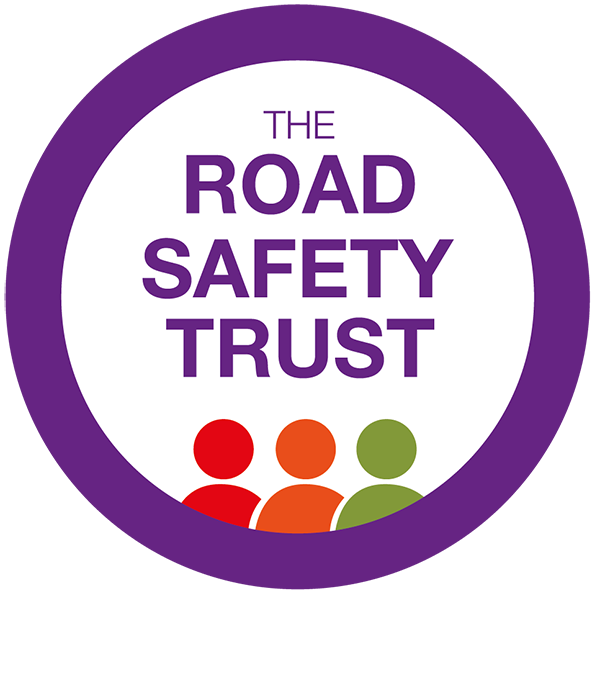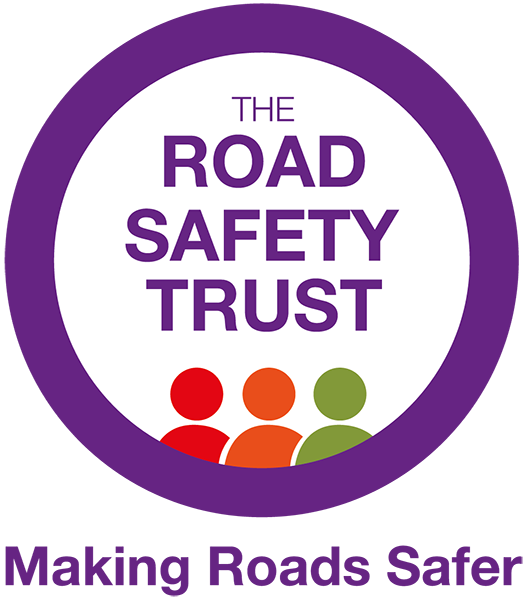The Road Safety Trust Announces £2.4 Million in Grants to Transform UK Road Safety
In a significant step towards its ambition of achieving ‘Vision Zero’ - zero deaths and serious injuries on UK roads - The Road Safety Trust has announced £2.4 million in grant funding for 11 pioneering projects.
From cutting-edge trauma research, to testing the effectiveness of child cycle helmets, these varied projects have the potential to reduce collisions, improve post-crash treatment and care and save lives in communities across the country.
Among the projects to receive funding is ‘IMPACT’, led by the Devon Air Ambulance Trust. This research programme will focus on the crucial role of bystanders in post-collision trauma care. It builds on the findings of the groundbreaking ‘Extrication in Trauma (EXIT)’ study, also funded by the Road Safety Trust in 2017.
That work has since revolutionised the extrication techniques applied to casualties after road traffic collisions in the UK and beyond, prioritising self-extrication in order to minimise entrapment time in a vehicle after collision.
Other projects receiving grant funding cover a wide range of road safety topics. They are:
IMPACT - the centre for post-collision research, innovation and translation – led by Devon Air Ambulance Trust
In-Situ Mobile Application for the Triage of Pedestrians in Vehicle Collision (SENTINEL) – led by Coventry University
Data Sustains Life (DSL): linking healthcare and road safety data to evidence preventative strategies towards vision zero, led by University Hospital Southampton
Children Cycle Helmet Rating, led by Imperial College London
Maximising learning from child road fatalities: evidence for action, led by University College London
A Virtual Rider Training Tool to Improve Children's and Parents' Cycling Awareness, Attentiveness, Attitudes and Safety, led by The Bikeability Trust
Road Traffic Injury impacts of Clean Air Zones/Low Emission Zones, led by Imperial College London*
Enhancing Road Safety: Automatic Vehicle Triage in the NHS Ambulance Service for Improved Post-Crash Care and Injury Prediction, led by Imperial College London
In the driving cessation decision seat: Feasibility and acceptability of a UK driving aid for older adults within dementia services, led by University of Surrey*
Young Riders Matter – led by National Young Rider Forum
The Community Radio Road Safety Project - Engaging Listeners, Saving Live, led by Bristol Community FM Radio
Ruth Purdie OBE, Chief Executive of The Road Safety Trust, said: “These 11 projects reflect our commitment to making UK roads safer for everyone. We are proud to support such a strong portfolio of work and are excited to see the life-changing impact the projects will have on road users across the UK.”
The Road Safety Trust has invested over £10 million since its inception almost a decade ago, funding innovative, evidence-based research and practical solutions that address persistent road safety challenges.
*Subject to the completion of the appropriate paperwork
Full details of each project are shown below. If you are interesting in learning more about a specific project, please email media@roadsafetytrust.org.uk.
IMPACT - the centre for post-collision research, innovation and translation
Devon Air Ambulance Trust
Amount: £492,058
This project delivers a multi modal package of research which builds on the findings of the successful EXIT project. This research aims to decrease the morbidity and mortality associated with road trauma by rigorously considering the role of the bystander, including professional bystanders, in the post-collision phase of care.
Working with key stakeholders this project will further understanding of the immediate post-collision phases of trauma, demonstrate the value of early triage and enable key interventions.
Utilising evidence-based medicine will ensure the scientific validity of the findings and facilitate translation to impact: - ultimately resulting in a coherent, joined-up, supported strategy for the enablement of bystander and non-clinician care following road traffic trauma.
In-Situ Mobile Application for the Triage of Pedestrians in Vehicle Collision (SENTINEL)
Coventry University
Amount: £409,319
Pedestrian casualties of road traffic collisions (RTC) can be incorrectly triaged to a hospital without the facilities to care for head trauma. This is because the clinical signs of head injuries have delayed onset, leading to traumatic brain injury (TBI).
This project will create and test the feasibility of a new mobile triage application for ambulance and emergency department services. The multidisciplinary team will use data from past and current West Midlands RTC cases and advanced computational methods to develop a validated tool, capable of accurately triaging pedestrian casualties at the scene of a collision.
The efficacy of the mobile triage application to accurately identify TBI in pedestrian casualties will be tested on consented and existing data collected at RTC events in the West Midlands, compared to current NHS systems.
Data Sustains Life (DSL), linking healthcare and road safety data to evidence preventative strategies towards vision zero
University Hospital Southampton
Amount: £406,888
The DSL project aims to address the lack of joined-up data, at scale, that a) quantifies the harm done by road traffic collision; b) supports prioritisation of collision and injury prevention strategies at national, regional, and local level; c) identifies and mitigates injuries with long-term consequences and high costs for society. The project will develop and prove the process for addressing this in the Dorset, Hampshire, and Thames Valley region.
The process will be capable of being brought to scale in other regions and nationally with investment from statutory authorities. Establishing robust data linkages will support identification, prioritisation and justification of cost-effective road safety interventions targeting fatal collisions and serious injuries, especially those with long-term societal consequences and high cost.
Children Cycle Helmet Rating
Imperial College London
Amount: £280,991
Children’s head protection is a sorely understudied area and there is very limited objective information for parents and caregivers when selecting cycle helmets for children. The aim of this project is to rate popular cycle helmets worn by children on UK roads and disseminate the results for the benefit of consumers and designers.
This project will determine the types of head injuries and impact conditions representative of children’s real-world cycling incidents and this information will then be used to develop a rating method for children’s cycle helmets.
Maximising learning from child road fatalities: evidence for action
University College London
Amount: £249,635
Fatal road injuries do not occur equally across communities from different socioeconomic groups.
This project will conduct a detailed analysis of the data held by the National Child Mortality Database, incorporating quantitative and qualitative approaches to uncover patterns, associations, and narratives related to child road fatalities, with the aim of developing a holistic understanding of the underlying risk factors for road fatalities in 0–17-year-olds in England, and the potential interventions needed for different groups to reduce risk of child and improve safety.
A Virtual Rider Training Tool to Improve Children's and Parents' Cycling Awareness, Attentiveness, Attitudes and Safety
The Bikeability Trust
Amount: £231,490
This project will create a virtual rider training tool, using a variety of cycling scenarios and road user perspectives, that will be embedded within the Bikeability Club community website and be accessible and engaging to thousands of children with the aim of helping them become more aware and attentive cyclists and ultimately safer road users.
Road Traffic Injury impacts of Clean Air Zones/Low Emission Zones
Imperial College London
Amount: £193,825
Clean Air Zones (CAZ) and Low Emission Zones (LEZ) aim to improve air quality by setting minimum emission standards for road transport and charging vehicles not meeting these standards. Although focused on air quality, such schemes can impact levels of motorised traffic as well as modal shares and correspondingly, road traffic injuries. The project will examine local plans and monitoring reports to characterise the design and implementation of different CAZ/LEZ and analyse how road safety is characterised in policy documents.
The project will use stats19 data to examine changes in road traffic injuries after introduction of CAZ/LEZ. The project will carry out a controlled interrupted time series analyses to track any immediate changes inside CAZ/LEZ as well as trends after implementation
This project is subject to the completion of the appropriate paperwork.
Enhancing Road Safety: Automatic Vehicle Triage in the NHS Ambulance Service for Improved Post-Crash Care and Injury Prediction
Imperial College London
Amount: £49,553
Annually, around 30,000 people in the UK suffer fatal or serious injuries in road traffic collisions. This pilot project aims to significantly reduce fatal and severe injuries by leveraging in-vehicle sensor technology to predict injuries and improve post-crash care.
This project addresses the lack of real-world sensor data for injury prediction algorithms and will uniquely develop algorithms for overall injury prediction and specialised algorithms for time-critical injuries from actual collision sensor data and injury outcomes.
In the driving cessation decision seat: Feasibility and acceptability of a UK driving aid for older adults within dementia services
University of Surrey
Amount: £49,093
A third of people with dementia drive. However, dementia impacts cognition, memory, reaction time and other capacities needed for safe driving. Driving cessation becomes inevitable for people with dementia and informal and formal carers can be influential in shaping the timing and outcome of driving decisions.
However, family and healthcare professionals find initiating conversations on driving competence, self-regulation strategies and driving cessation challenging and, until now, there have been few guides/decision tools to help professionals and family members with these discussions.
This study will use mixed methods to explore the feasibility, acceptability and merits of using a new UK-adapted dementia driving decision aid (DDDA-UK). DDDA-UK has undergone proof of concept testing with early results suggesting that it can help people with dementia to continue driving safely and has the potential to help those losing capacity for being safe on the road to cease driving at an appropriate time. However, it has not been used or evaluated in real-life settings, such as NHS memory services for people with dementia.
The project will determine the current levels/ type of driving cessation support provided by memory services in Surrey and whether DDDA-UK and the methods used to evaluate it are suitable for scaling up and rolling out across England.
This project is subject to the completion of the appropriate paperwork.
Young Riders Matter
National Young Rider Forum
Amount: £46,063
Young Motorcyclists continue to be over represented in the KSI casualties statistics despite accounting for fewer numbers and miles travelled on our roads than all other road users groups.
With this research project NYRF will take our knowledge and work with young riders to the next level. The project will build upon a strong foundation that NYRF have formed since 2019.
It will provide new information and learning about young riders particularly those working in the GIG economy or affected by the cost-of-living crisis who use a motorcycle to access education, work or leisure. This project revisits the first one completed in 2020 but uses five fresh years of data, face to face focus groups and new virtual technology.
The Community Radio Road Safety Project - Engaging Listeners, Saving Lives
Bristol Community FM Radio
Amount: £39,725
This project, carried out in partnership with University of the West of England, Avon & Somerset Police, and four other community radio stations across the West of England, will seek to tackle road safety concerns in the region using the power of community radio.
This project will raise awareness of road safety issues and make a difference by promoting safer behaviours among all road users, by delivering:
Community Focus Groups - Gather targeted insights from diverse demographics to inform messaging.
Engaging Radio PSAs - Produce a collection of radio announcements tailored to resonate with specific audiences.
National Toolkit - Empower community radio stations across the UK with a comprehensive resource for developing effective road safety campaigns.
This project aims to go beyond traditional road safety projects and campaigns and create a sustainable model for positive change. By harnessing the unique reach and trusted voice of community radio, we hope to create a safer road environment for everyone in the West of England and inspire a national movement towards improved road safety.
18 November 2024

